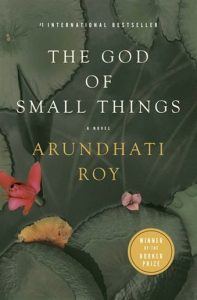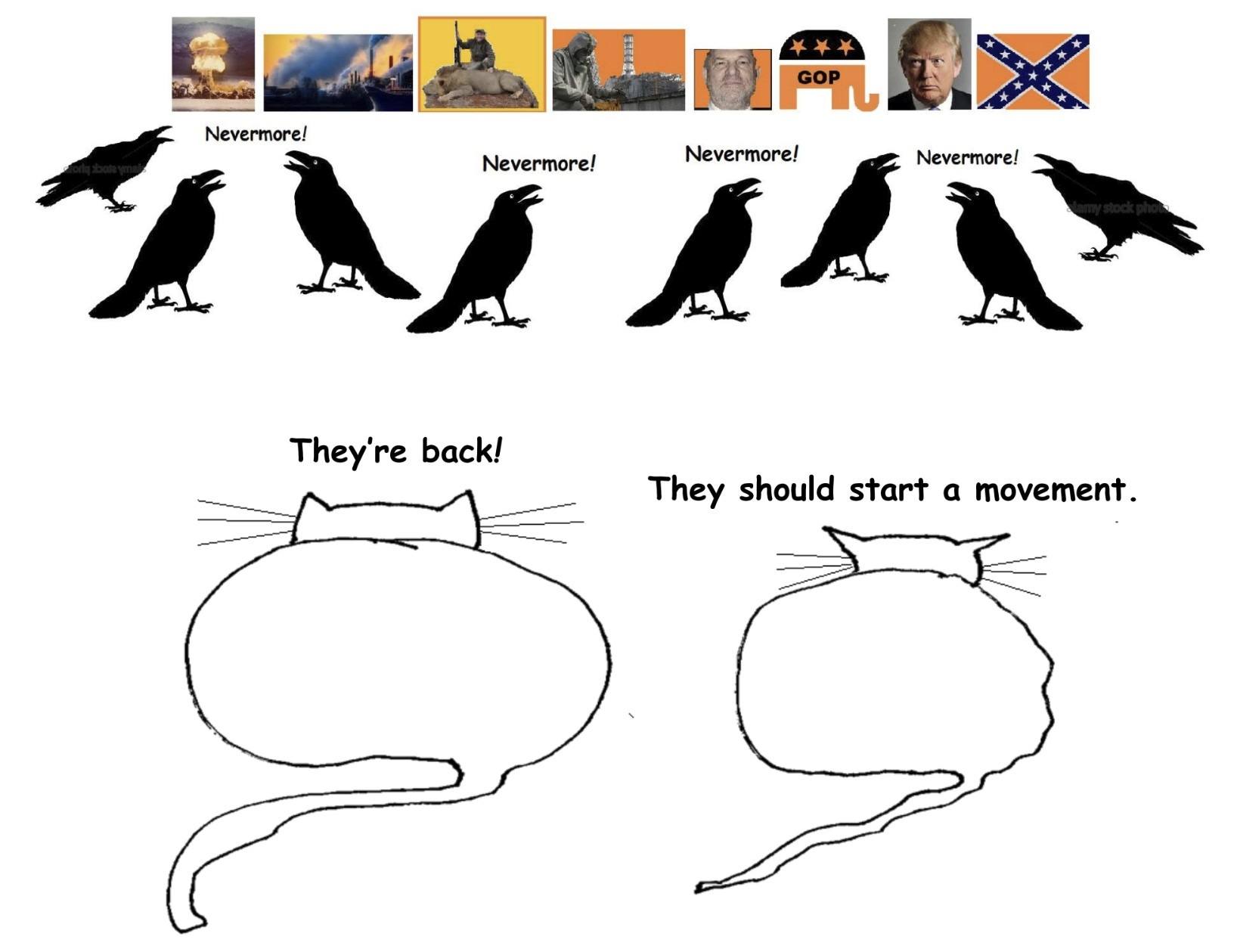by Brooks Riley

by Brooks Riley

by Jeroen Bouterse

What do you prove by fooling somebody? What did Alan Sokal prove when he got his bogus paper on ‘quantum hermeneutics’ published in Social Text? What did Helen Pluckrose, James Lindsay and Peter Boghossian prove when they got several bogus papers published in several different journals?
Earlier this month three authors (to whom I will henceforth refer as ‘PLB’) published an exposé in Areo Magazine in which they explained how and why they had tricked several academic journals into accepting or seriously considering for publication hoax articles. The hoax articles often defend ideas that PLB themselves consider to be highly unethical, such as equating privately conducted masturbation with sexual violence, or calling for training men like we train dogs. The journals in question apparently condoned these ideas even though the articles intentionally lacked good arguments to support them.
According to PLB, this teaches us a lot about the postmodern left. I think it doesn’t. In the following, I will provide some comments on what our hoaxers claim they have shown, how little of that they have actually done, and what they could have done instead. I will start with a relatively minor point: whether PLB are entirely honest about what they’ve pulled off. My main point, however, will be that PLB simply fail to link their evidence to their conclusions. Read more »
by Max Sirak
 Last fall, after a day spent hiking around the neighborhood, I ended up back on my porch with my buddy, Chef Mike. We were drinking beers and chatting about life.
Last fall, after a day spent hiking around the neighborhood, I ended up back on my porch with my buddy, Chef Mike. We were drinking beers and chatting about life.
We covered a lot of ground. Both in our walks and our talks that day. Mike was getting ready to move. He’d been in Colorado for five years and knew it wasn’t his “forever” home. As his name implies, he works in restaurants. One nice thing about that line of work is if you’re good, then you can peddle your wares anywhere. Oregon was his next stop.
At one point, when our conversation hit a lull, as conversations are wont to do, he turned to me and said…
*Chef Mike apologizes. It turns out he missed a word in this recording…
I was a pile of laughs before he even finished. “Dude?! What the hell?! What was that?!,” I managed to spurt out between giggles.
“It’s a Chinese tongue twister.”
To fully appreciate my response it might help to know a thing or two about Chef Mike. I was hoping to post a picture, those being worth the words they are, but he said he’d rather I didn’t. Instead he sent me his personal logo (featured above).
Mike’s in his thirties. He’s a good ol’ Italian boy from Chicago who’s built like a bear. Burly. 230 lbs. Six feet tall. Bearded. And, to the best of my knowledge in the course of our two-year friendship, Mike knew no Chinese. Read more »
by Christopher Bacas
 The William Penn High School Marching band was a juggernaut, the coolest team in school. Its director, Holman F James, strode the football field, unzipped windbreaker, cigarette dangling, the Greatest Generation’s bandmaster. A sterling musician, he played trumpet and piano, wrote or arranged all the music and choreographed our field shows. He was also a solider, avid outdoorsman and master craftsman, everything Hugh Hefner should have been.
The William Penn High School Marching band was a juggernaut, the coolest team in school. Its director, Holman F James, strode the football field, unzipped windbreaker, cigarette dangling, the Greatest Generation’s bandmaster. A sterling musician, he played trumpet and piano, wrote or arranged all the music and choreographed our field shows. He was also a solider, avid outdoorsman and master craftsman, everything Hugh Hefner should have been.
I got the band music months before our first rehearsals and trained myself to look away from the page as I played. At the first summer music rehearsal, more than two-hundred teens packed the band room. Mr James ran our opener. Sixty-odd woodwinds repeatedly muffed their way through his rapid figurations.
“Whoa. Whoa. Can I hear each of you on that?”
Everyone had a chance to show him our homework. I came prepared. Mr James used me to call out upperclassmen. He wouldn’t accept adolescent sloppiness. Anyone could receive a dressing-down: drum major, soloist or just a rank and file band member with dirty white shoes. Each week, we had uniform inspections and rehearsals on the field. Talking back was unthinkable. Particularly after a kid who cursed him felt Mr James’ dress shoe in his ass. We all watched tears drip from the kid’s eyes as he continued to stand at attention. Read more »
Capitals: Game Farouk Plays To Keep Mother’s Mind Active
Moscow! Mother says
when Farouk asks,
Capital of Russia?
Japan? Tokyo!
She gazes at the sun
mirrored in a pane
across the courtyard.
“You were born
a week after Nagasaki,”
she says to Farouk
who arches his eyebrows
leans forward in his chair
gently rubs her gnarled fingers,
but keeps on playing.
Germany? Munich!
No. Berlin, he says,
& you, standing at the footboard,
think to what purpose
reprising history
of human madness
in the 20 th Century.
So many hardy women — here
Hebrew Home for Aged
The Bronx
lived through so many horrors
the horror of nuking humans
of Partitions
horror of Holocausts
of Ku Klux Klan
of a Cold War in Europe
horror of hot wars in Asia —
so many strong women like Mother
paragraphs of pyrrhic pride
writ on furrowed faces,
declining on soft beds—
yes, declining not reclining —
who now play along
with prosperous sons
in posh pavilions
named for patrons
who would annex
planets beyond the moon
if they could.
What’s the capital of Israel? Farouk asks.
“A trick question,” Mother says,
chuckling, “Falasteen.”
by Holly Case

A few years ago I found among my effects fourteen typewritten pages of prose fastened together by a rusty staple. A relic from the summer of 1996, the text was a guide to reading poetry. “It is impossible for me to write anything about the explication of poetry without pontificating a bit,” it began. The author was L., then a masters student in English literature at one of the state universities.
L. and his wife lived in a dark, forever-damp colossus of a barn that sat isolated on a flat plot in a shallow valley, close enough to the James River that it was called a neighborly “Jim.” There was a vacant dance hall upstairs in what had once been a hayloft, and downstairs living quarters that flooded perennially, their polychrome carpet mingling with Jim’s riverbed in a lavish, whiffy delta. L. wrote his master’s thesis there, as well as the epistolary exegesis on poetry for a young me.
That summer our separate holding patterns intersected in my parent’s two-story living room, which we were hired to paint while waiting for real life to begin. As the heat rose each day, I got crankier and L. grew more avuncular. Often the subject turned to poetry, his spiritual homeland but an exotic destination to me. After listening to him go on about iambs and enjambments and “-ameters,” I likely lost patience and told L. he’d have to begin at the beginning. Intent as he was on becoming an English teacher, he must have taken my defensiveness as a challenge. Shortly thereafter I got the packet. Read more »
by Hari Balasubramanian
 A bit of self indulgence – also a kind of preface to all the 3 Quarks Daily essays I’ve written.
A bit of self indulgence – also a kind of preface to all the 3 Quarks Daily essays I’ve written.
I’ve always thought of myself as someone who is more drawn to the humanities than to math or the sciences. This can seem very puzzling to someone who looks at my career details: degrees in engineering and a career in academia in a branch of applied mathematics called operations research. Even I am stumped sometimes – how did I get so deep into a quantitative field when all my life I’ve held that literature (literary fiction in particular), history and travel are far better at revealing something about the human condition than any other pursuit?
Some follow an ambition stubbornly wherever it takes them and whatever the consequences. I did not have that kind of resolve. Growing up in west and central India, I read a lot English and American fiction – Agatha Christie, Alfred Hitchcock, Alistair Maclean – and decided that I must become a writer (English only of course for the mentally colonized, why would I write in Tamil or Hindi?). The ambition was strong enough to have a grip on my thoughts for the next two decades, but never strong enough to counter practical concerns. Like many middle class families, my parents felt I had to get into an engineering or medical college since both offered the promise of financial stability. I simply went along, following what high school friends around me were doing. After toying with majors as diverse as electronics and metallurgy I finally settled on something called production engineering. In 1996, I left home and attended what was then called the Regional Engineering College, twenty kilometers from the south Indian city of Tiruchirappalli: a semi-industrial, semi-rural middle of nowhere kind of campus where teenagers from far flung states of India came and lived in packed hostels for four years.
The ambition to become a writer, meanwhile, bided its time. All you had to do was write one breakthrough novel, something like Arundhati Roy’s The God of Small Things, become famous, then write full time: that was the naïve worldview that sustained me for a long time. Read more »
by Shawn Crawford

Why do we stay? We lack the resources or the opportunities. We remain faithful to a place given to us through an accident of birth. We rage and complain but never wander very far, the reasons a cipher to ourselves. Even in America, a land of nomads and self-fashioning, most of us eventually find a place that is our Place, and feel compelled to return again and again. I continually meet people that define where they are merely in terms of where they left. We stay even in our absence.
The exodus of Irish writers from their country in the early 20th Century, most notably James Joyce and Samuel Beckett, would influence all of literature for the rest of the century. Before both could create, they would have to come to terms with an Irish culture that offered both a deluge of artistic tradition and a stifling insularity that threatened to eat every beautiful creature Irish writers produced. But they would become exiles in very different ways, although Beckett would work as Joyce’s literary secretary for a time, until he left to find his own identity and narrative path.

Joyce never left Dublin no matter how far he roamed. He occupied Dublin in his mind, obsessed over its topography, demanded to know of every change from friends, wrote of no place else his entire career. But Beckett would succeed by leaving in the most astonishing manner: not only would he leave Dublin in his work to inhabit a place that was Everywhere but Nowhere, he would leave English and begin writing exclusively in French. Moving to another language would give Beckett the order, discipline, and what he called the “impoverishment” needed to find his own voice and literature. He would create as close to the bone as possible and find the heart of modern human existence. And then he would put the work back together again in an English stripped of all flourishes.
While Beckett and Joyce would grow into titans of modern literature, another Irish writer would stay in Dublin, laboring to survive while producing a body of work both utterly brilliant and utterly unknown today except for a devoted cult following. That man was Flann O’Brien. Read more »
by Joseph Shieber
 1. Bored, and with little to occupy their time, two cousins, Elsie, who was 16, and Frances, who was 10, decided to play around with photography. At a river near where they lived, they manipulated an image so that it looked as if they were interacting with little, magical winged creatures — fairies.
1. Bored, and with little to occupy their time, two cousins, Elsie, who was 16, and Frances, who was 10, decided to play around with photography. At a river near where they lived, they manipulated an image so that it looked as if they were interacting with little, magical winged creatures — fairies.
The photo was believable enough that they fooled a number of adults — including world-famous writers. The girls produced a number of other photos, using the same methods. The media was ablaze with discussions of the images and of whether they provided proof of the existence of fairies.
This all happened in 1917.
I was reminded of this case — the case of the Cottingley fairies — by the recent interest in the phenomenon of deepfakes.
Deepfakes are incredibly realistic manipulations of video and audio. Here, for example, is a video of President Obama uttering something that President Obama never said — made by swapping in the actor Jordan Peele’s mouth and voice.
If you believe the hype surrounding deepfakes, this technology threatens not only “the collapse of reality”, but also the falsification of our memories. While the threat is real, the problem isn’t actually with the deepfakes — it’s with us.
Actually, the discussion of deepfakes can help us to see two different problems that we face. Solving those problems, however, doesn’t really involve technological solutions. Read more »
by Joan Harvey

Even though I knew better, when I was told I could get free magazine subscriptions with my minimal airline miles that would otherwise expire, I succumbed. Of course I didn’t need any more reading material, and I was fully aware of the waste they’d create, but I allowed myself to be lured by the idea that getting something was better than getting nothing. So I got Food and Wine, with recipes that I could never make, and Conde Nast Traveler, with glamorous photos of places I’ll never go. And I got Vogue, with, naturally, clothes I will never wear. I’ve always enjoyed fashion. But I found the first issue I received, August, disturbing. I was astonished at how covered up all the models were. Almost no skin anywhere. Necklines were high, so high that there were turtlenecks even on summer dresses. Turtlenecks even on the beach. Long coats over full length body suits on the beach. Gigi Hadid, of Dutch and Palestinian heritage (I suppose to avoid issues of cultural appropriation) is shown in a head scarf and a coat the same green as the sister wives in The Handmaid’s Tale. And, naturally, she too is wearing a turtleneck. There are also almost no legs to be seen in the issue. Dresses are shapeless and long. Even bare arms are rare. Hair is cut short or covered up. The September Vogue was not much different. More long dresses, more head scarves, more turtlenecks on the beach. Though in this issue we do get some shots of Beyoncé’s legs.
An article in the September Vogue by Lynne Yaeger asks: “Is there seduction in concealment?” The models in the photos accompanying her essay have not just their bodies, but their faces covered as well. “What is the meaning of this peekaboo?” Yaeger writes. “Is this desire to cover up— which manifested itself in the all 2018 collections not just with covered heads but with modest necklines and voluminous long sleeves—a reflection of the #MeToo moment, a rage against the sexual-objectification machine? . . . Or perhaps the new visibility of women in the Middle East, and they way that hijabs are finding their way into the fashion vocabulary, is playing a role? Or could it just be that in an age of Instagram vainglory the allure of literally covering up, of not being so endlessly available, has its own currency?”[1] Read more »
by Brooks Riley

by Abigail Akavia
 Two weeks ago, Maniza Naqvi evocatively wrote here on the resonance of a mythological rape in the eventual confirmation of Brett Kavanaugh to the US Supreme Court (“The State of The Rape of Sabines”). Today, I would like to revisit Christine Blasey Ford’s testimony, focusing on how the qualities of her voice were put front and center by those who refused to take her actual words seriously. In the Ford-Kavanaugh events, we witnessed, again, how female suffering—the female voice itself as it tells of violence and injustice—is dismissed and mistrusted. And I would like to show that this resonates powerfully with another two of our civilization-forming myths: the rape of Persephone and the song of the Sirens.
Two weeks ago, Maniza Naqvi evocatively wrote here on the resonance of a mythological rape in the eventual confirmation of Brett Kavanaugh to the US Supreme Court (“The State of The Rape of Sabines”). Today, I would like to revisit Christine Blasey Ford’s testimony, focusing on how the qualities of her voice were put front and center by those who refused to take her actual words seriously. In the Ford-Kavanaugh events, we witnessed, again, how female suffering—the female voice itself as it tells of violence and injustice—is dismissed and mistrusted. And I would like to show that this resonates powerfully with another two of our civilization-forming myths: the rape of Persephone and the song of the Sirens.
During her testimony, disparaging comments on Blasey Ford’s childish tone and her vocal fry appeared on social media; these qualities were, for those responding to it, signs of her untrustworthiness. Such disapproving comments are an example of fairly run-of-the-mill misogyny: a suspicion against what a woman has to say simply because she sounds too feminine. But with vocal fry in particular, there is an interesting inversion of expectations at work that is worth considering. Read more »
by Thomas Wells
 Middle age brings sometimes uncomfortable self-reflection. One thing I have realized is that I am not a particularly good person. Not evil, just mediocre. Lots of people are much better at morality than me, including many of my students. On the other hand, I am quite good at the academic subject of ethics. Good enough to teach it at a university and write papers that occasionally appear in nice journals.
Middle age brings sometimes uncomfortable self-reflection. One thing I have realized is that I am not a particularly good person. Not evil, just mediocre. Lots of people are much better at morality than me, including many of my students. On the other hand, I am quite good at the academic subject of ethics. Good enough to teach it at a university and write papers that occasionally appear in nice journals.
Is there a contradiction between these two observations? Is there a causal relationship?
When I started studying ethics I assumed it would somehow make me a morally better person. But I never really thought through that ‘somehow’ and after 15 years I can see that my complacency was not justified. My moral achievements still derive mostly from the good habits my parents trained me in. If I am at all a better person than I was 15 years ago, that has had more to do with the good people I have been lucky enough to know than with what I have been reading, thinking, and teaching.
Some years ago, for instance, I worked through the arguments around animal rights and decided to my intellectual satisfaction that the case against eating them was completely compelling. But I still eat meat nearly every day. I did try vegetarianism a couple of times but gave up because it was too hard. Vegetarian food in every situation was always worse than the meat alternative. And I got very tired of eating cheese.
Aristotle would diagnose my failing as akrasia, or weakness of will. I characterize it in more familiar terms as moral laziness. I claim moral principles, but I am not prepared to put much effort into living up to them. In the same way, I think I want to be thin, but – practice has revealed – I am not prepared to exchange my comforts for ascetic bowls of muesli and pre-dawn running regimes. Either I don’t care about being good as much as I think I do (a motivation problem), or I am not really convinced by my own moral reasoning (a rationality problem). I think it may be a bit of both. Read more »
by Liam Heneghan

Battered by thoughts of finitude, by thoughts of decay, my confidence ebbs. I come now to this place; I come to this cemetery. Mere weeks before was I not as light as a seed-filament, I who am so preoccupied by unknown fates, by sepulchral dreads, by nostalgic aches for the rose-scented afternoons of summer?
O summer days, where now is your exuberance? Did I not assure my love that we would endure, that our lives would go from strength-to-strength, that hardship had been banished? Read more »
by Emrys Westacott
 How conceivable is this? Trump loses the 2020 US presidential election. But he refuses to concede, claiming that results in the swing states of Ohio and Florida were invalid due to voter fraud and crooked election officials. Fox News, other right-wing media and the Republican controlled congress go along with this. So Trump remains president until, in the words of Senate leader Mitch McConnell, “we are able to clear up this mess.” Clearing up the mess, it turns out, could take some time–even longer than it takes for Trump to fulfill his promise to release his tax returns. Law suits are brought, but guess what? By a 5 to 4 majority, the supreme court refuses to hear them.
How conceivable is this? Trump loses the 2020 US presidential election. But he refuses to concede, claiming that results in the swing states of Ohio and Florida were invalid due to voter fraud and crooked election officials. Fox News, other right-wing media and the Republican controlled congress go along with this. So Trump remains president until, in the words of Senate leader Mitch McConnell, “we are able to clear up this mess.” Clearing up the mess, it turns out, could take some time–even longer than it takes for Trump to fulfill his promise to release his tax returns. Law suits are brought, but guess what? By a 5 to 4 majority, the supreme court refuses to hear them.
Couldn’t happen, you say. The constitution and all that. To which I would say just two words: Merrick Garland. When the Republican-controlled senate refused to hold confirmation hearings for Garland after he had been nominated by Obama for a vacant seat on the Supreme Court, they effectively suspended–some would say “trampled underfoot”–the constitution. Nothing more clearly exposes the hypocrisy of the Republican call for judges who will “uphold” the constitution than that cynical maneuver.
I’m not saying that the above scenario is likely. But I am saying that is quite conceivable. And for anyone who cherishes conventional democratic values, its mere conceivability has to be alarming. Read more »
by Dwight Furrow
 Although wine writing takes diverse forms, wine evaluation is a persistent theme of much wine writing. When particular wines, wineries or vintages are under discussion, at some point the writer will typically turn to assessing wine quality. The major publications devoted to wine include tasting notes that not only describe a wine but indicate its quality, often with the help of a numerical score, and most wine blogs and online wine magazines include a wine evaluation component that is central to their mission.
Although wine writing takes diverse forms, wine evaluation is a persistent theme of much wine writing. When particular wines, wineries or vintages are under discussion, at some point the writer will typically turn to assessing wine quality. The major publications devoted to wine include tasting notes that not only describe a wine but indicate its quality, often with the help of a numerical score, and most wine blogs and online wine magazines include a wine evaluation component that is central to their mission.
But if, as readers, we are to make a judgment about whether an evaluation is legitimate or not we must know what its purpose is. What are these evaluations aiming to achieve? Is wine criticism similar to film, book, or art criticism? Or is it more akin to the evaluation of consumer products? The practice of using a numerical score to indicate quality is controversial and much has been written about it. But an assessment of that practice depends on answering this question about the goal or goals of wine criticism. Read more »
by Samia Altaf
Part 1 of this essay is here.

Pakistani cinema of the nineteen-sixties was active and vibrant, its death knell still a decade away. Memorable movies were made and ran for weeks—Do Ansoo, a silver jubilee hit from fifties, Heera Aur Pathar, Ghunghat, Chakori amongst others, and, of course, the great hit Armaan. Our heroes were as handsome as any—Darpan, Sudhir Santosh Kumar, Waheed Murad, Mohammad Ali—and the villains—Aslam Pervaiz,Talish—as nasty as any. Amongst the heroines were Sabiha Khanum, Nayyar Sultana, Bahar, and Shamim Ara who went on to direct films, quite a feat in the male-dominated industry. All these, including Rani, Neelo, and Zeba, the dewy–eyed beauty, traipsed through our lives, trembled and faltered and danced and sang their way into our hearts. For all the drama, the costumes and the histrionics, it was the musical score that stayed. The lyrics written by acclaimed poets, music composed by artists steeped in the classical tradition—Rasheed Atre, Khurshid Anwar, Nisar Bazmi—and sung by the greats of the times—our own melody queen Malika-e-Tarannum Noor Jehan leading the pack who kept crooning till almost her dying days, heart disease and all. We saw these pictures once, twice, as many times as we could wangle, because going to the pictures was the main thing.
Though we thrilled through the fictional lives of the stars, part of the attraction were the intermission, a much anticipated event by itself, and the trailers that ran before the main film. As soon as the velvet curtains swished together at intermission, the vendors descended screaming their wares. Pakorey, Choley, biscuits, soda-water, lemon and orange flavored, the bottles clinking and opened intriguingly by pushing the round glass stopper to the bottom. Coca-Cola would make its way to sleepy Sialkot in the mid-sixties and change our intermission lives forever. Read more »
by Dave Maier

The other day here at 3QD, philosopher Guy Elgat provided an interesting discussion of the conspiracy theory Q-Anon and some relevant philosophical issues about knowledge and rationality. In particular, he focused on a seemingly perverse response by Q-ers to our challenge to provide proof of their outlandish claims: that we “don’t have any proof there isn’t [a Q].” I had a number of reactions to this column, as well as to some of the comments from readers, but I didn’t want to dump a huge comment on the thread (plus I had to think about it), so I thought I would put my response here instead.
I get the impression that since the QAnon business is sheer madness, and thus not philosophically interesting, what interests Elgat about it is instead the apparent parallel, epistemically speaking, with the historically much more substantial question of whether God exists. (For instance, he notes that religious believers pull this same epistemic-leveling move, in discussion with atheists, as do Q-ers with us.) I find this a bit misleading, or at least confusing, and I think that in the Q case we should be a bit more choosy about what exactly the content of their controversial belief is, even if we sacrifice that potentially interesting parallel. (In fact I think religious faith is a much more complex phenomenon than simply “belief in God,” to which proofs of this or that are pretty completely irrelevant; but let’s leave God out of it entirely for now.)
Elgat’s argumentative strategy, in any case, is to assimilate the Q-er to the Cartesian skeptic, both of whom issue seemingly impossible challenges to prove them wrong: in the one case, that Q exists; in the other, that we are brains in vats and are thus massively deceived about “the external world” outside our senses. In each case, in Elgat’s telling, the challenger’s conclusion, should our proof fail, is that we thus are “in an epistemological stand-off” and must acknowledge that “since I cannot show you I am right and you cannot prove me wrong, I am perfectly within my rights, so to speak, to continue to believe in whatever I choose to believe.”
Elgat has two responses to this. Read more »
by Michael Liss
 My dad was a pharmacist. He had an old-fashioned store (including an actual soda fountain and stools) and some of the old-fashioned tools of the trade: scales and eye-droppers, spatulas and ointment bases, graded flasks and beakers, amphorae, and his mortar and pestle.
My dad was a pharmacist. He had an old-fashioned store (including an actual soda fountain and stools) and some of the old-fashioned tools of the trade: scales and eye-droppers, spatulas and ointment bases, graded flasks and beakers, amphorae, and his mortar and pestle.
Pharmacy was a bit more of an art in those days and doctors often wrote prescriptions that had a little eye of newt in them. This could make Dad cranky, as they took time and counterspace, but I suspect that, secretly, he liked doing them. He would bring out the mortar and pestle (sometimes with a Remington’s Practice of Pharmacy), and, for all intents and purposes, he could have been an herbalist for a Pharaoh, so old was the tradition of combining exotic ingredients and using time and pressure until the desired potency and texture was achieved.
I have been thinking about that mortar and pestle the last few weeks. They remind me of how just the simplest set of tools, coupled with accumulated knowledge and craftsmanship, can produce something useful and even essential. And, they make me wonder whether, in this insane age, where ignorance and even falsehoods are celebrated and experience scorned, there is anything at all they still have to teach.
Last month, I attended the 16th annual conference of Columbia’s Center on Capitalism and Society. The topic was “The Economic Consequences of Mr. Trump: Jobs, Wages, Trade, Growth, Health and Satisfaction.” The organizers made a real effort to include views from across the spectrum, although it’s fair to say a majority were not Trump supporters. Nevertheless, the overall tone was cautious and analytical, rather than hypercritical. These are serious people (including three Nobel Prize winners), all literate and classically trained, and all share a deep understanding of the laws of economics, and a vast knowledge of data and historical trends.
There is no way I can do justice to a day of such intense sobriety, so I’m going to take a shortcut. Trump is not like anyone in their collective experience. Read more »